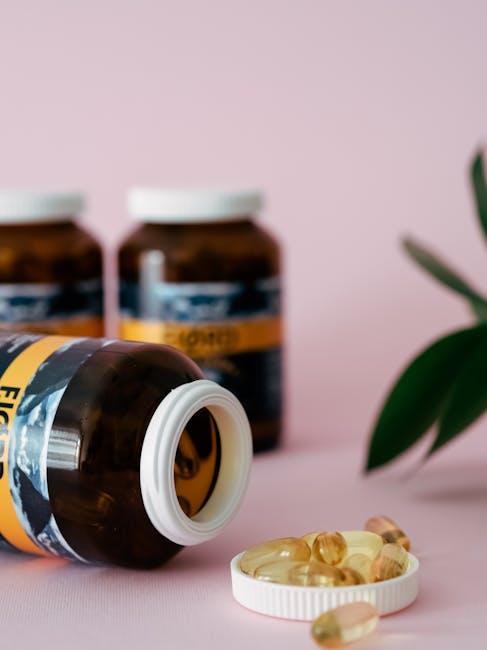Introducing probiotics into your dog’s diet can be a transformative step towards enhancing their overall health and well-being. Just as probiotics have gained popularity among humans for their ability to support digestive health, these beneficial bacteria can also work wonders for our furry friends. In this article, we’ll guide you through the process of supplementing your dog’s diet with probiotics, ensuring you understand the benefits, the best sources, and the right approach to take. Whether you’re looking to boost your dog’s immune system, improve their digestion, or simply provide them with a little extra care, incorporating probiotics can be a gentle yet powerful way to support their health. Let’s explore how you can make this positive change in your dog’s life, one step at a time.
Understanding the Benefits of Probiotics for Your Dogs Health
Adding probiotics to your dog’s diet can be a game-changer for their overall well-being. These beneficial bacteria work wonders in maintaining a balanced gut flora, which is crucial for digestive health. A well-functioning digestive system not only ensures that your furry friend gets the most nutrients from their food but also supports a robust immune system. Here’s how you can seamlessly incorporate probiotics into your dog’s daily routine:
- Choose the Right Form: Probiotics come in various forms, including powders, capsules, chews, and even in certain foods. Consider your dog’s preferences and dietary needs when selecting the type.
- Consult Your Veterinarian: Before introducing any supplement, it’s wise to discuss it with your vet to ensure it complements your dog’s health plan and to determine the appropriate dosage.
- Start Slowly: Begin with a small amount and gradually increase it to the recommended dose. This helps your dog’s system adjust without causing any digestive upsets.
- Observe for Changes: Monitor your dog for any positive changes such as improved stool quality, better appetite, and increased energy levels.
By incorporating probiotics into your dog’s diet, you are taking a proactive step towards ensuring their long-term health and happiness. Remember, a healthy gut is a foundation for a happy pet!

Choosing the Right Probiotic Supplement for Your Furry Friend
When it comes to selecting the perfect probiotic for your canine companion, it’s essential to consider factors that ensure both safety and effectiveness. Look for supplements specifically formulated for dogs, as human probiotics may not be suitable for their digestive systems. Opt for products that list specific strains of beneficial bacteria, like Lactobacillus and Bifidobacterium, known to support gut health in dogs.
Pay attention to the delivery method that suits your dog’s preferences and lifestyle. Some options include:
- Powders: Easily mixed with food, ideal for picky eaters.
- Chewables: Treat-like supplements that are convenient and palatable.
- Capsules: Can be hidden in treats or opened and sprinkled over meals.
Lastly, ensure that the product is backed by scientific research and preferably recommended by veterinarians. This way, you can confidently provide your furry friend with the digestive support they need to thrive.

Incorporating Probiotics into Your Dogs Daily Diet
Adding probiotics to your dog’s daily diet can be a simple and rewarding way to boost their overall health. Start by choosing a high-quality probiotic supplement specifically formulated for dogs. These can often be found in powder, capsule, or chewable form. When selecting a product, look for those that contain multiple strains of beneficial bacteria, as this diversity can better support your dog’s digestive system. It’s important to follow the recommended dosage based on your dog’s weight and consult with your veterinarian to ensure it’s the right fit for your furry friend.
Integrating probiotics into your dog’s meals can be done seamlessly with a few creative approaches:
- Mixing: Sprinkle probiotic powder over your dog’s regular food, making sure it adheres well to the kibble or mix it into wet food for even distribution.
- Treats: Opt for probiotic-infused treats that can serve as both a tasty reward and a health booster.
- Homemade Recipes: Incorporate probiotics into homemade dog food or snacks, ensuring the ingredients complement the beneficial bacteria.
As you introduce probiotics, monitor your dog’s response, looking for improvements in digestion, coat quality, and overall vitality. Remember, consistency is key to reaping the long-term benefits of probiotics in your dog’s diet.
Monitoring Your Dogs Health and Adjusting Probiotic Intake
Ensuring your dog’s health is an ongoing process that involves observing changes in their behavior, appetite, and overall well-being. Regularly monitor your dog’s health by keeping an eye on their energy levels, stool consistency, and any signs of allergies or skin conditions. These indicators can help you assess whether the current probiotic regimen is beneficial or if adjustments are needed.
If you notice any of the following signs, consider consulting your veterinarian to adjust the probiotic intake:
- Changes in stool, such as diarrhea or constipation
- Increased or decreased appetite
- Excessive scratching or skin irritation
- Lethargy or unusual behavior
Adapting the dosage of probiotics can make a significant difference in your dog’s health. Sometimes, starting with a lower dose and gradually increasing it can help the digestive system adjust more comfortably. Remember, each dog is unique, and their needs may change over time, so regular check-ins are key to maintaining optimal health.

